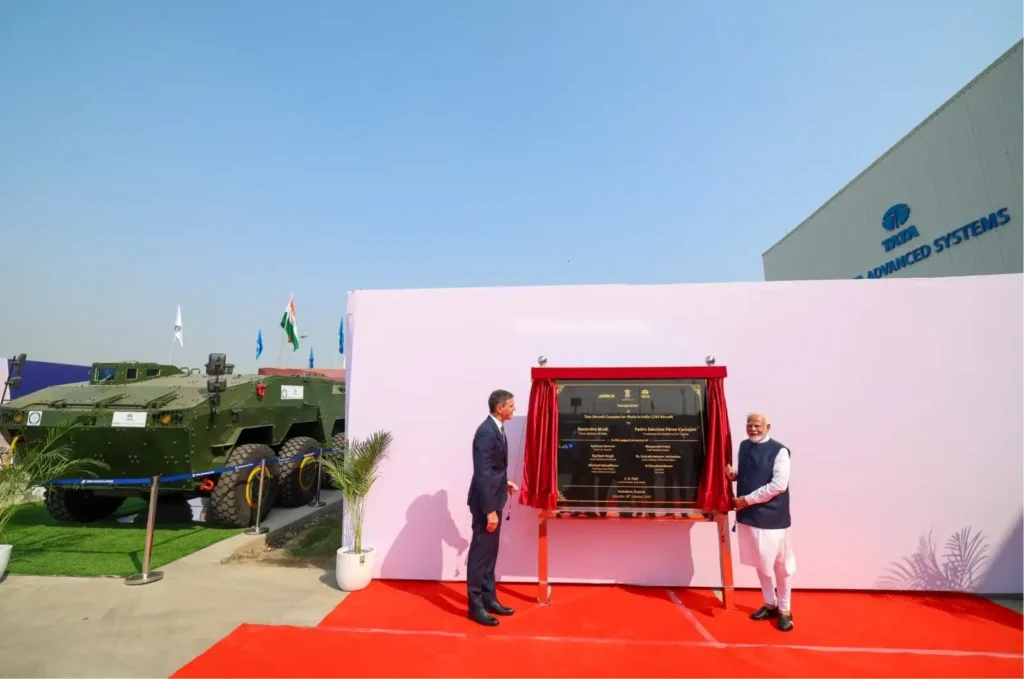India’s Aviation Dreams Soar with Tata-Airbus Plant
The Tata-Airbus plant in Vadodara is a milestone for India’s aspirations to produce indigenous civil aircraft, setting the stage for the country’s entry into the global aviation industry.

The President of the Government of Spain, Mr. Pedro Sánchez (Left) & Prime Menister of India Narendra Modi | Photo Source: X.com
The recent inauguration of the Tata–Airbus manufacturing plant in Vadodara marks a significant step in India’s journey towards domestic aircraft production. The plant, which was opened by Prime Minister Narendra Modi and Spanish President Pedro Sanchez, will initially focus on producing C-295 military transport aircraft, marking the first private sector final assembly line for military aircraft in India. Under the project, 16 aircraft will be delivered directly from Spain, with the remaining 40 produced locally in partnership with Airbus.
Prime Minister Modi underscored India’s transformation in aviation over the past decade and shared aspirations for the country’s future as an aviation hub. This initiative is viewed as a pathway to realizing India’s long-term goal of manufacturing indigenous civil aircraft. He stated, “This factory will play a crucial role in designing and manufacturing civil aircraft to meet India’s future needs.”
The journey from military to civil aircraft manufacturing, however, is complex and ambitious. Building a commercial plane has historically been dominated by giants like Boeing and Airbus, which control 90% of the global market. While India’s Hindustan Aeronautics Ltd. already produces fighter jets and is working on a 19-seater civil aircraft, creating larger commercial aircraft remains challenging. India’s ambitions follow China’s years-long journey to develop the COMAC C919, which competes with the A320neo and 737 MAX 8. Despite significant progress, the C919 still depends on foreign technology and lacks full international certification.
Recently, India’s Civil Aviation Minister announced plans for a Special Purpose Vehicle (SPV) to propel domestic aircraft manufacturing. This SPV would pool expertise from industry and government, aiming to eventually source all components locally. Initial assistance from established players like Boeing and Airbus may be necessary to launch the project effectively.
The timing for India’s ambitions couldn’t be better. With a fast-growing economy, the world’s largest population, and rapidly increasing air travel demand, India is expected to require over 2,200 new aircraft over the next 20 years. Both Airbus and Boeing have struggled to keep up with global demand due to supply chain issues, making space for a new player to enter the market.
Establishing a sustainable commercial aircraft manufacturing ecosystem will demand high investment, international partnerships, and stringent certification standards. Analysts note that India’s current aerospace ecosystem is positioned to expand in the supply chain, while full aircraft manufacturing remains a future target. The Tata-Airbus facility, while dedicated to defense transport, strengthens India’s industrial base and can play a key role in this ambitious journey.






